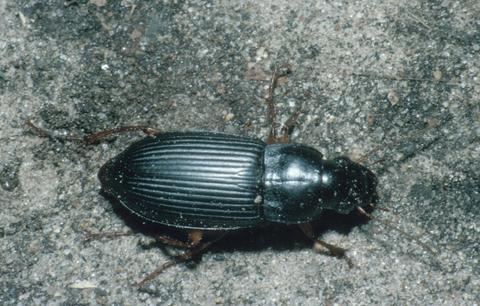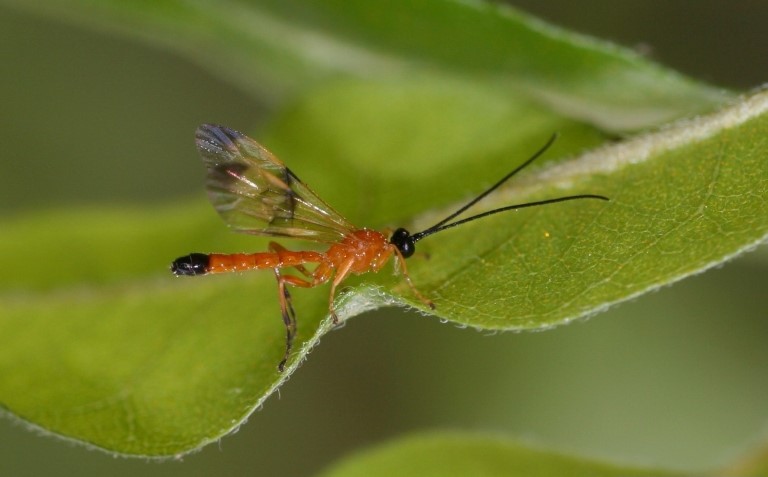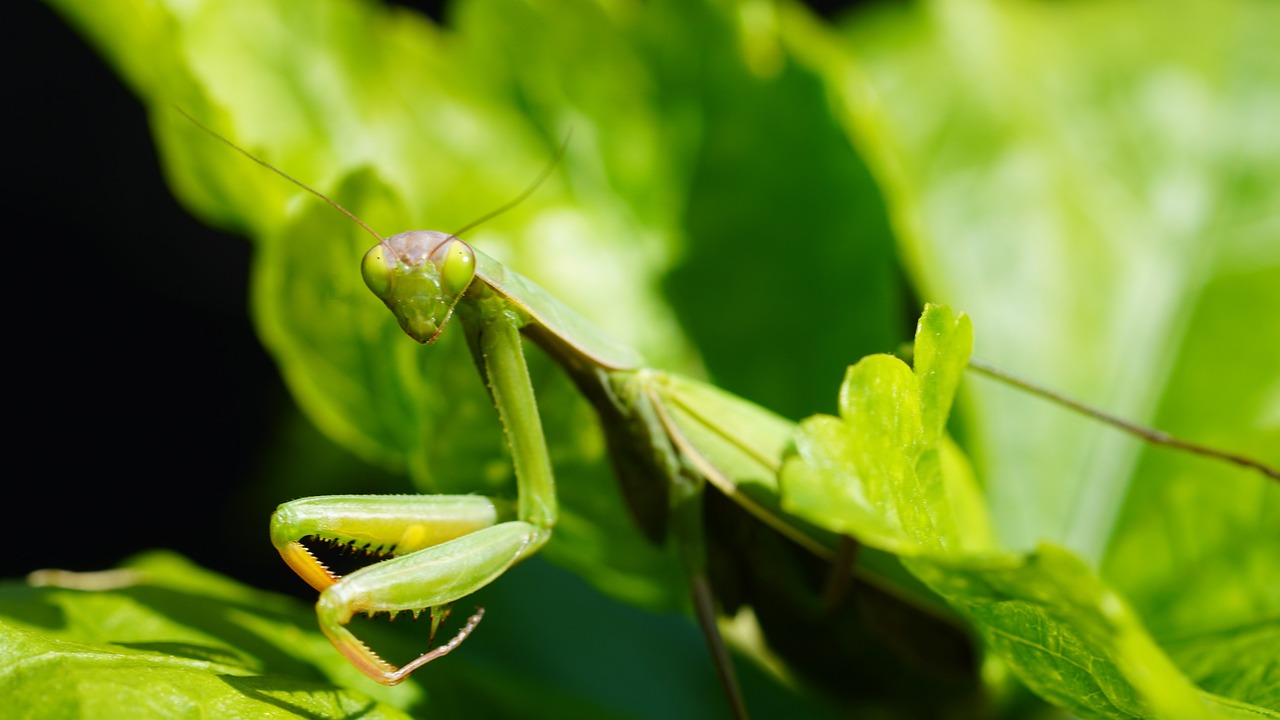As a place full of food, water, and shelter, your garden will be very attractive to many insects. Unfortunately, many of the insects attracted to your garden are destructive — such as aphids, millipedes, and whiteflies. But there is some good news — your garden can also attract insects that are natural enemies and predators of garden pests. They are called “beneficial insects”. Here are eight of the best beneficial insects to attract to your garden.
8 beneficial insects for your garden
1. Assassin bugs
There are three general kinds of beneficial insects — parasitizers, pollinators, and predators. Parasitizers are those who lay their eggs on or in garden pests, killing the garden pests in the process. Pollinators are, well, pollinators like honeybees. And predators are those who hunt garden pests for food.
As their name suggests, assassin bugs are predators. They feed on aphids, caterpillars, hornworms, and leaf hoppers. The problem with these garden pests is that they feed on your plants, sucking the life out of them. Assassin bugs are a great way to control the population of these garden pests.
Put these in your garden to attract assassin bugs — alfalfas, daisies, goldenrods, marigolds, shrubs, and vines.
2. Green lacewings
Green lacewings may look like delicate and harmless insects. But don’t be fooled. They are calculating predators that move in the dark. These nocturnal insects have a voracious appetite for small and soft-bodied garden pests like aphids, mites, and whiteflies.
You really don’t want aphids in your garden. These garden pests produce honeydew that attracts other garden pests that like sweet substances, such as ants and wasps. If your garden has aphids, it’s vulnerable to other garden pests. Prevent this from happening by attracting green lacewings.
Put these in your garden to attract green lacewings — coriander, dill, fennel, Queen Anne’s lace, and sunflowers.
3. Ground beetles
Some beetles are destructive to your garden, such as vine weevils. But some beetles are beneficial insects, like ground beetles. These nocturnal insects like to hide in flagstones and rocks in the daytime. But as the sun sets, they venture out and look for squishy prey like caterpillars, maggots, and even snails.
Ground beetles are natural predators of cutworms and caterpillars that cut through leaves and stems and basically kill plants. Keep the population of caterpillars like cutworms in check with the help of ground beetles.
Put these in your garden to attract ground beetles — flagstones and rocks, open dirt areas, potted plants, and rotting wood.

4. Hoverflies
Flies get a bad reputation. This is understandable. After all, you can get a lot of diseases from flies. And fruit flies are particularly problematic for those with gardens. You can even end up eating fruit flies because they stay in fruits and vegetables.
Hoverflies are different. They are beneficial insects for your garden because they feed on aphids, beetles, and caterpillars. Their larvae are especially voracious predators of these garden pests.
Put these in your garden to attract hoverflies — bergamot, dill, lemon balm, mint, and parsley.
5. Ladybird beetles
More commonly known as “ladybugs,” ladybird beetles are some of the most ferocious predatory insects you can have in your garden. They are particularly effective in controlling the populations of aphids. Their larvae can eat up to 40 aphids an hour. Considering that aphids cluster in large numbers, this voracious appetite is really helpful in controlling aphid populations.
Don’t let their gracious appearance fool you. These merciless predators protect your garden from harmful garden pests. With that said, you shouldn’t rely solely on ladybird beetles if you have a serious garden pest infestation.
Put these in your garden to attract ladybird beetles or ladybugs — cosmos, goldenrods, and zinnias.
6. Parasitic wasps
No, these are not big and yellow wasps trying to sting you every chance they get. Parasitic wasps are small wasps. You may not even see them doing the dirty work in your garden. They are parasitizers, so they lay their eggs in or on garden pests, eventually killing them. They are great if you want to control the populations of caterpillars like tomato hornworms and bad beetles like Japanese beetles.
Don’t worry. They are not as dangerous as hornets, yellow jackets, and other big wasps that you may be thinking about. Parasitic wasps are not really interested in humans. However, they may still sting if you mishandle them or appear as a threat to them.
You can actually buy parasitic wasps in retail stores. They are that mainstream. But you can put these in your garden to attract parasitic wasps naturally — alyssum, asters, daisies, and cilantro.

7. Praying mantids
There are thousands of species of praying mantids out there, including a small group known as mantises. People are often confused by this and just call any mantid they see a praying mantis. But it doesn’t matter. Whatever it is you have in your garden, it’s beneficial.
Praying mantids are carnivores. They eat small insects you can call garden pests, such as aphids and caterpillars. They are also known to attack relatively bigger animals, such as birds, frogs, and lizards. However, mantids prey on insects too that are not necessarily garden pests, like crickets and grasshoppers.
Put these in your garden to attract praying mantids — cosmos, dill, fennel, and yarrow.
8. Spiders — are beneficial to your garden believe it or not!
Spiders have a bad reputation, and this is all thanks to venomous spiders like black widows. But not all spiders are dangerous to humans. Look at Argiope spiders, jumping spiders, and wolf spiders. Though they are technically arachnids and not insects, they are still incredibly beneficial.
These spiders prey on live insects that are usually garden pests, like aphids, beetles, flies, and wasps. However, they are not very choosy with their prey. They also feed on those that are not necessarily garden pests, like bees and grasshoppers.
Put these in your garden to attract spiders — compost piles, dead leaves, grass clippings, layers of mulch, and random pieces of rock and wood.
Attract beneficial insects to your garden
Your garden will attract a lot of insects. Some of these are garden pests, such as aphids, millipedes, and whiteflies. You can control the population of garden pests by attracting beneficial insects for your garden. These beneficial insects are natural enemies and predators of common garden pests.
With that said, it’s unrealistic to expect your garden to be completely devoid of life. Even the beneficial insects in your garden need the garden pests to survive. After all, what are they going to eat?
Accept the fact that life will always thrive in your garden. Control the kind of life that thrives in your garden by attracting beneficial insects and making your garden hostile and unattractive to destructive insects.

